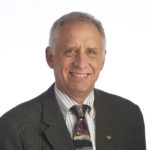Sharp’s Solar Energy Solutions Group will relocate from Sharp’s western regional office in Huntington Beach, Calif. to its campus in Camas, a company official confirmed Friday.
The solar group has 35 employees, said Eric Hafter, senior vice-president for the Sharp division that oversees all of the company’s solar operations in the Americas. Hafter said it’s not yet clear how many of the employees will transfer from California.
The relocation will begin in August and is likely to take a couple of months, he said.
“Obviously some people are concerned about leaving their lives behind,” Hafter said. “I’m thrilled. It’s going to be a great place for our organization.”
Sharp Solar’s arrival will make it the third subsidiary of Japan-based Sharp. Corp. to share a Camas campus. Already located side-by-side on Northwest Pacific Rim Boulevard are Sharp Laboratories of the Americas, which specializes in digital displays, and Sharp Microelectronics of the Americas, which specializes in marketing the company’s high-tech products.
John Marck, president of Sharp Microelectronics of the Americas, said having the company’s three major technology development units in Camas “creates a tremendous amount of synergy from a technology standpoint.”
“Through all this synergy, we think we’ll be able to get some new products to market quicker and be more cost effective,” he said.
Marck also believes the presence of Sharp’s solar division will boost the Portland-Vancouver region’s growing renewable sector.
Lisa Nisenfeld, interim director of the Columbia River Economic Development Council, said the move is good news for Clark County’s struggling economy.
“We’re very excited to get some momentum behind the solar energy here, she said. “It’s a natural fit with our semiconductor plants.”
Sharp was not recruited by local economic development officials to make the move, Hafter said.
Sharp Corp. is one of the world’s leading manufacturers of solar cells and has been mass producing solar cells since 1963. It produces solar cells at two factories in Japan, and uses the cells to manufacture solar modules in five factories around the world, including one in Tennessee.
Its website says the company created the world’s first solar-powered calculator and that its products power more homes and businesses than any other manufacturer.
Hafter said he expects rapid growth in demand in solar power, particularly with new concerns about nuclear power as a result of damage to a Japanese nuclear plant from the recent earthquake and tsunami.
“Solar is incredibly clean and it’s almost always welcomed into the community,” he said. “It’s such a positive direction to helping heal the planet.”



